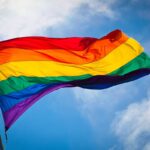By Jonathon Van Maren
Trinity Western University’s law school has just won a major victory. According to the Globe and Mail:
The B.C. Court of Appeal has upheld the right of Trinity Western University to operate a law school, saying the Law Society of B.C. was wrong to refuse the school’s application over concerns that its so-called community covenant discriminates against LGBTQ people.
The decision, released Tuesday by a panel of five judges, is expected to be appealed, putting complex issues of competing rights under the Charter before the Supreme Court of Canada.
I’m not sure what a “so-called covenant” is, but one can hardly expect the impartial journo-judges over at the Globe to be too thrilled at what social progressives are sure to see as a setback. The Appeal Court judges, on the other hand, were refreshingly clear-eyed in their own judgement, writing in part:
A society that does not admit of and accommodate differences cannot be a free and democratic society — one in which its citizens are free to think, to disagree, to debate and to challenge the accepted view without fear of reprisal. This case demonstrates that a well-intentioned majority acting in the name of tolerance and liberalism, can, if unchecked, impose its views on the minority in a manner that is in itself intolerant and illiberal.
This is a welcome rebuke to the activists who have been pushing for discrimination against Trinity based on the university’s Christian principles—tolerance should work both ways, although it increasingly seems that “tolerance” is simply a bludgeon buzzword to be utilized against those who have not been swept along by the evolving social consensus on the Sexual Revolution. The Globe’s bias against Trinity comes through clearly in their column:
The Law Society of B.C., which represents lawyers in the province, has wrestled with the question of whether to approve a law school at TWU. Initially, in 2014, the society approved the proposal, although some benchers – essentially the society’s board of governors – opposed it.
That triggered a backlash among members and a referendum, in which a majority voted against accrediting the school.
Following that referendum, in December 2014, B.C.’s minister of advanced education revoked his consent for TWU’s proposed program, pending the result of the legal case.
Much of the Appeal Court decision concerns the balancing act between rights to religious freedom and equality rights – including the right to go to law school – for LGBTQ people.
That last statement—that Trinity’s Christian principles somehow impact the right of LBTQ people to attend law school—is rather ludicrous. Nobody has to go to Trinity Western University—it’s an entirely voluntary decision. If one does not wish to be bound by Trinity’s code of conduct, they can simply attend an enormous number of other, less expensive universities that will be happy to celebrate and cater to every imaginable form of sexual expression. The attack on Trinity is not about the right of LBTQ people to attend law school, it is on the right of Christians to choose to associate with one another and around shared values. I really doubt the luminaries in the media would suggest that Trinity be permitted to enter a float in the Pride Parade advocating for traditional marriage, for example. Fortunately, the judges in the appeal case seem to agree:
“TWU is a relatively small community of like-minded persons bound together by their religious principles,” the judges said. “It is not for everyone. For those who do not share TWU’s beliefs, there are many other options.”
Truly, a good day for religious liberty–and for tolerance. We hope and pray that the Supreme Court justices will be as reasonable.









I applaud this decision by the BC Court of Appeal, and give thanks to God for His mercies upon us.